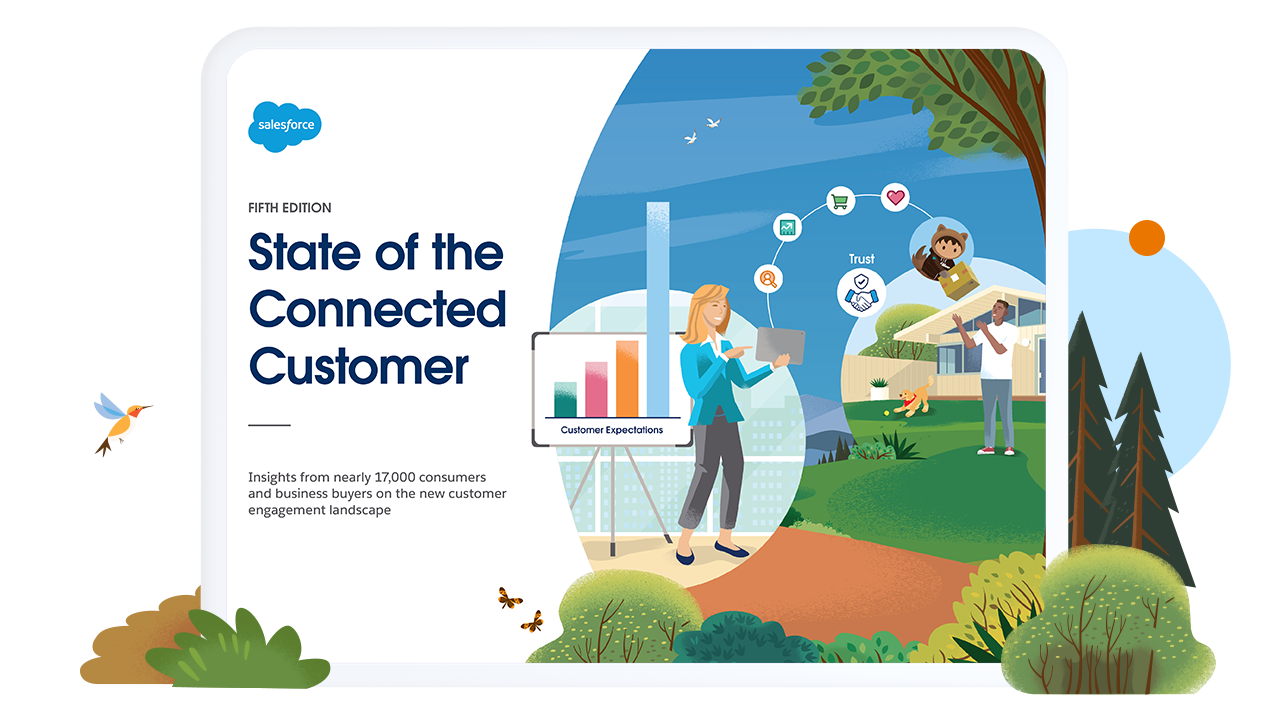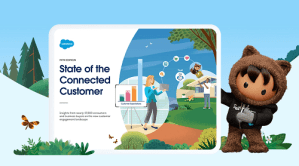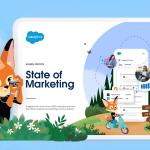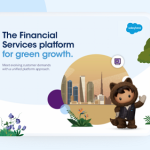Today’s customer has a lot on their mind. In a rapidly changing world, questions of trust, values, and integrity are front of mind. But what impact does that have on the way they engage with your business? We went right to the source to find out.
Our 2022 State of the Connected Customer report reveals what makes more than 13,000 global consumers and 4,000 business buyers tick. It’s our fifth edition, and more than 650 respondents live right here in South Africa.
South Africa is set for an epic year. According to Statista, the digital economy will boom by 24.8%. It’s an exciting year for us too. We’ve established a legal entity in South Africa and appointed Zuko Mdwaba, Area Vice President and Country Leader, and Linda Saunders, Head of Solution Engineering, to lead the region.
But let’s face it, none of that would be possible without our customers. So, let’s take a look at the five top trends that matter most to customers in South Africa.
State of the Connected Customer Report
Learn about attitudes to trust and loyalty, how to balance personalisation with privacy, and the best ways to engage with customers at every touchpoint.

1. A trust-based economy is moving to the forefront
We’ve had a bumpy ride these past few years. From the global pandemic to extreme weather caused by climate change, trust in the government is spiralling. But 94% of respondents in South Africa said trust becomes even more important in uncertain times. That means customers are increasingly looking to businesses to do the right thing and build great experiences based on trust.
With only 37% agreeing that they generally trust businesses, there’s work to be done. While most people reported they ‘completely’ or ‘mostly’ trust companies to act with integrity, the trust section of our survey indicates uncertainty from customers.
In other areas of the survey, a markedly larger proportion of customers provided a definitive yes or no response. When asked about trust, approximately 50% of customers were reluctant to commit to saying they completely trust companies.
The problem doesn’t lie with sales. A whopping 99% of customers expect sales reps to act as trusted advisors, and only 20% don’t feel like they can trust the sales team. Instead, customers are concerned by bigger issues around privacy, responsible use of personal data, and honest communication.
So, what are the five top ways you can build trust?
- 84% want to see greater transparency and better communication.
- 76% want to be treated as a person, not a number.
- 76% want greater assurance that you’re using their data responsibly, and 85% think this is more important than ever.
- 76% expect issues to be resolved quickly and proactively with great communication throughout.
- 72% want a consistent experience across all touchpoints.
When it comes to building trust as an organisation, customers are more likely to engage with companies that actively demonstrate good values and prioritise health and safety.
2. Building brand loyalty matters more than ever
Thanks to digitalisation, the world is our oyster. While that’s great for customers, it means building brand loyalty is more important than ever – and customer relationships can be influenced by unexpected factors.
While it’s not surprising that 84% of buyers think about how you treat customers:
- 70% want to know you treat employees well.
- 61% are looking at how you respond to racial injustice.
- 50% will be scrutinising your environmental practices.
- 47% consider action on economic injustice important.
- 41% rate you on how involved you are in the community.
To find out how you meet these standards, 95% of respondents expect you to state your values clearly – and 79% have ditched a company for a competitor that more closely aligns with their principles. That said, customers in South Africa also switch brands for better deals, high quality, and better customer service.
Launching a loyalty programme is a great way to reward customers and entice new ones. Customers rate businesses that make it easy to redeem, like by automatically applying rewards, as well as those that offer personalised deals, and allow them to use loyalty points across multiple brands.
As always, knowing your customer is key.
3. Businesses must balance personalisation with privacy concerns
Personalisation extends far beyond communications these days. Customers expect you to understand their needs and expectations, and anticipate them at every touchpoint.
Digital channels continue to dominate customer engagement. They expect consistent, personalised experiences across multiple channels. In fact, 94% say customer experience is just as important as products or services – but only 63% agree that companies provide consistent, omnichannel experiences.
While two-thirds of customers are happy to swap personal information for a more tailored experience, an overwhelming majority feel more data is collected than needed, companies aren’t transparent about how they’re using it – and 67% don’t think they benefit from sharing their data.
To make customers feel more at ease, it’s important to communicate clearly about why you’re capturing personal data and how it will be used – remember, only 24% of consumers feel confident that companies will fully respect their privacy.
Going back to that 76% of customers want to be treated as a person, not a number: the appetite for personalisation is there, but only 44% feel like companies treat them as an individual.
4. There’s a fine line between the promise of a better life and distrust in technology
Artificial intelligence has been a game-changer for freeing up people’s time, but while 75% of respondents in South Africa are open to the idea of it, 86% think it has equal potential to be a force for good and bad.
Less than half of customers understand the role of artificial intelligence in business. To make them feel more at ease, respondents want:
- Greater control over how it’s used and the opportunity to provide feedback.
- Access to the research behind the tech.
- Input from human rights and ethics experts.
- Inclusion of more diverse data sets.
Happily, customers are more willing to trust technology when it comes to order tracking and contactless payments, and 60% expect augmented or virtual reality to be used more in the future.
Helping customers understand the role technology already plays in streamlining and automating their experience is key to reassuring them about its potential to make life better in the future.
5. Customers increasingly expect a joined-up experience
Giving customers a consistent experience across departments isn’t just a nice-to-have: 92% of respondents expect it, and it has a direct correlation to loyalty.
However, only 14% of customers feel like companies have a consistent voice across departments, with more than half reporting it doesn’t feel like sales, service, and marketing teams share information to give the customer a seamless experience.
Crucially, 84% of respondents revealed that a lack of consistency across touchpoints makes them lose trust in a company, and 58% lose faith when they receive irrelevant communications that don’t match their experience,
So, how is South Africa measuring up when it comes to demonstrating consistency across touchpoints?
- 25% of customers completely trust businesses
- 58% of customers somewhat trust businesses
- 15% of customers mostly distrust businesses
- 2% of customers completely distrust businesses
Your biggest takeaway here? Make sure you’re rewarding your customers with a great, joined-up experience in exchange for their data.
Uniting teams on Customer 360 creates enterprise visibility not just across departments, but on all channels and every device. This isn’t just key to giving customers a seamless experience but provides an opportunity to have better conversations and to collect comprehensive data to use for personalisation.
State of the Connected Customer Report
Now you’ve seen what’s going on in South Africa, download the full report to see what matters most to almost 17,000 consumers and business buyers across the world.

























